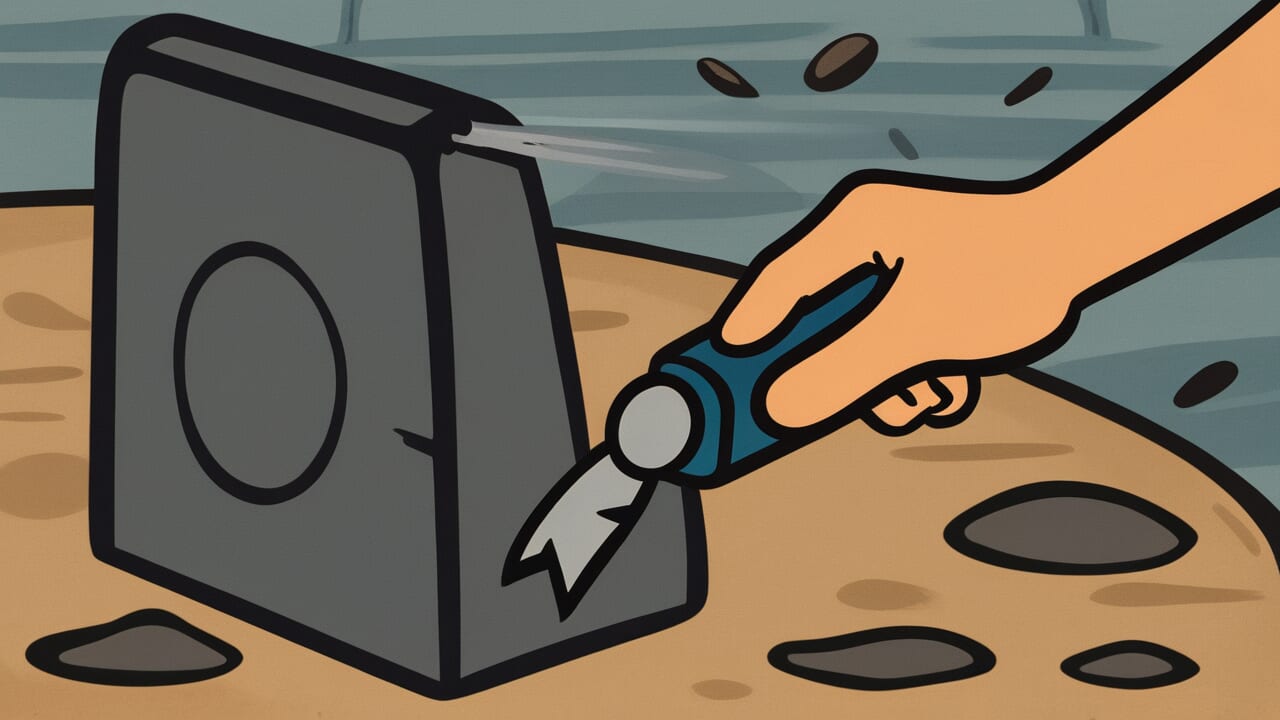How to Read “A magnet attracts iron but not stone”
Jishaku tetsu wo suu tomo ishi wo suwazu
Meaning of “A magnet attracts iron but not stone”
This proverb means that everyone has strengths and weaknesses. Even the most talented person cannot handle everything well.
A magnet has strong power to attract iron. But it can never attract stone. Just like this natural law, humans also have areas where they excel and areas where they struggle.
Someone who shows amazing talent in one field may be completely unable to perform in another field.
This proverb is used when acknowledging your own or others’ limitations. When you demand perfection or try to force results in areas you’re weak at, these words encourage calm judgment.
The expression also reminds us to maintain appropriate distance when we place excessive expectations on others.
Modern society often demands people who can do everything. But this proverb continues to hold value by teaching the importance of putting the right person in the right place.
Origin and Etymology
The exact origin of this proverb is not clearly documented in historical texts. However, it likely came from observing the properties of magnets.
The phenomenon of magnets attracting iron has amazed people since ancient times. Magnets were known in China since before the Common Era, and this knowledge spread to Japan.
When you bring a magnet close to iron, the iron gets pulled toward it as if alive. This mysterious force fascinated people greatly.
But people also noticed the limits of magnets. Even the strongest magnet cannot attract stone, wood, or copper. This selective nature became the core of this proverb.
The clear distinction between what magnets can and cannot do made them a perfect metaphor for human abilities and aptitudes.
Even a magnet that seems all-powerful has things it can attract and things it cannot. By applying this natural principle to human society, wisdom emerged about accepting limitations and differences in aptitude.
This expression beautifully combines scientific observation with understanding of human nature.
Usage Examples
- He achieves amazing results in sales, but a magnet attracts iron but not stone—he’s really bad at paperwork
- Even the best teacher follows the rule that a magnet attracts iron but not stone, so they can’t provide perfect guidance for every student
Universal Wisdom
Behind this proverb lies a deep conflict that humans have always faced. It’s the eternal tension between wanting to be perfect and facing the reality of having limits.
Everyone wishes to be capable of handling everything well. People with exceptional abilities often feel this desire even more strongly.
But in reality, no matter how hard you try or how talented you are, excelling in every field is impossible.
The magnet metaphor is brilliant because it teaches that limitations are not flaws but characteristics. A magnet’s inability to attract stone doesn’t mean the magnet is inferior.
It’s simply an essential property of what a magnet is. Similarly, human strengths and weaknesses don’t diminish a person’s value—they form what makes that person unique.
Through this natural law, our ancestors tried to pass down wisdom that affirms human diversity.
It’s okay not to be able to do everything. Focus on what you’re good at and let others handle what you’re not good at.
This proverb contains deep insight that such complementary relationships enrich society.
When AI Hears This
Looking at how magnets attract only iron from an information processing perspective reveals a surprising truth.
Countless materials exist around a magnet, but it doesn’t react at all to stone, wood, or water. This “ability not to react” is actually what makes a magnet a magnet.
If a magnet reacted to every material, it wouldn’t be a magnet anymore—just chaos. The condition of an excellent system isn’t “what it can do” but “what it doesn’t do.”
For example, 11 million bits of sensory information flow into the human brain every second. But only about 40 bits reach consciousness.
In other words, the brain can think only by discarding 99.9996 percent of information.
The same principle works in companies. Successful organizations have clear “don’t-do lists.” When Google focused on search in its early days, when Apple drastically reduced its product line—both concentrated their power through selective non-response.
From this perspective, this proverb isn’t just about compatibility. It touches the core of complexity science.
For a system to function, it needs clear boundaries that pick up only specific signals from massive noise and completely ignore everything else. Strength also means the strength not to react.
Lessons for Today
Modern society tends to idealize “people who can do everything.” But this proverb challenges that value system. What matters is knowing what your “magnetic force” responds to.
What are you good at? It might be something that comes naturally to you but is difficult for others.
On the other hand, you surely have things you’re not good at. That’s not lack of effort—it’s the nature of your magnet.
This understanding brings two freedoms. One is the freedom not to blame yourself for things you’re weak at. The other is the freedom to focus on what you’re good at.
Rather than forcing yourself to handle everything, choosing a path that uses your strengths will produce far greater results.
And the same applies to people around you. Everyone has different “magnetic forces.” By recognizing and complementing each other’s strengths, you can achieve great things that no one could accomplish alone.
Value what makes you unique, and respect others’ individuality too. This proverb shows us a guideline for living this way.



Comments